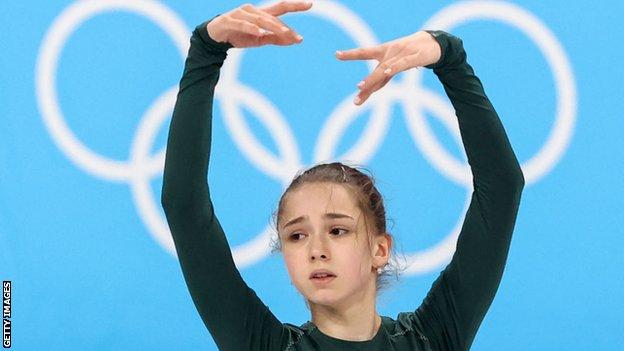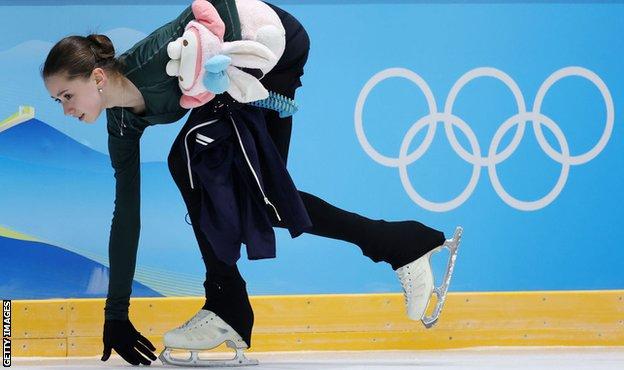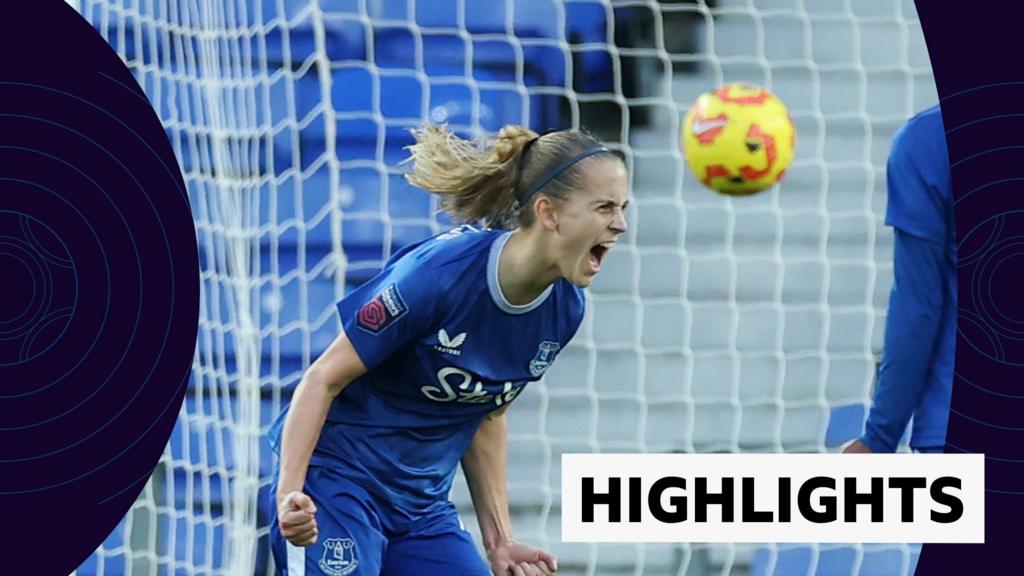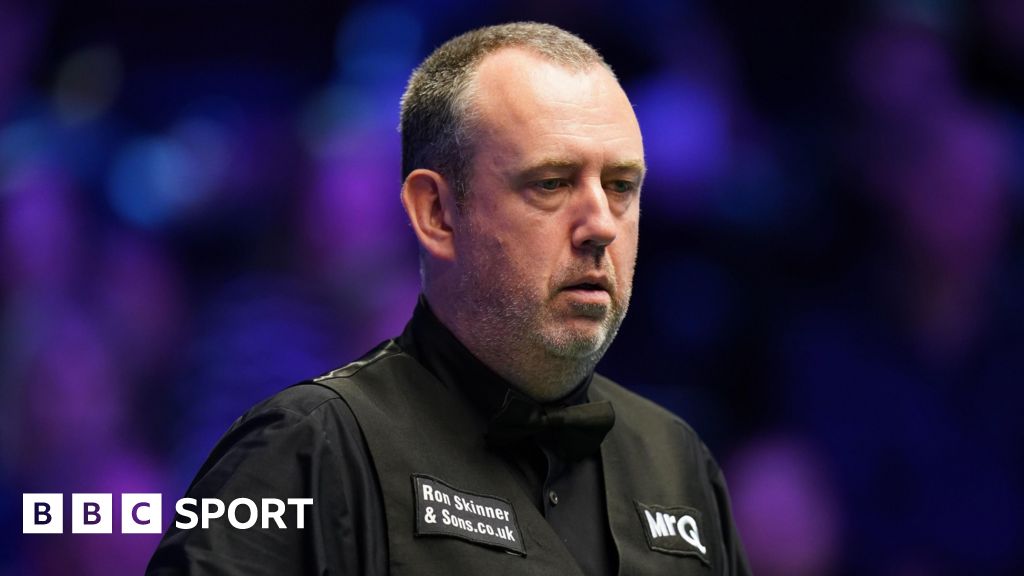ARTICLE AD BOX
 Kamila Valieva will launch her bid for gold in the women's event on Tuesday after being cleared to compete
Kamila Valieva will launch her bid for gold in the women's event on Tuesday after being cleared to compete| Hosts: Beijing, China Dates: 4-20 February |
| Coverage: Watch live on BBC TV, BBC iPlayer, BBC Red Button and online; listen on BBC Radio 5 Live and BBC Sounds; live text and highlights on BBC Sport website and mobile app |
If Kamila Valieva wins Olympic gold this week, there will be no medal ceremony, no anthem and no flag.
That is what happens when an athlete who has failed a drugs test is allowed to compete at a Games where her country is already banned for a doping scandal.
The medal is on hold until a decision has been made on Valieva - before she has even competed.
Alongside the outrage and the questions about who is responsible for the fact a 15-year-old Russian figure skater has tested positive for a banned substance are those who are disappointed and disillusioned by the processes that have led to this scenario.
So, how did we get to this point?
Why is Valieva being allowed to compete despite failed drugs test?
When the Russian Anti-Doping Agency (Rusada) received word on 8 February that Valieva had failed a drugs test, it provisionally suspended her in line with Wada rules.
Valieva appealed against the decision - on what grounds, it is so far unclear - and Rusada agreed to lift the suspension the following day.
The International Olympic Committee (IOC), World Anti-Doping Agency (Wada) and the International Skating Union (ISU) then launched an appeal with the Court of Arbitration for Sport (Cas) to get the provisional ban re-imposed.
The Cas hearing was only ever about the provisional ban - it was not considering the positive test or the circumstances around it.
It decided that because of Valieva's age and the "untimely notification of the results" of the failed test - in the middle of the Games and nearly six weeks after she gave the sample - that it would do her "irreparable harm" if she were not allowed to compete.
So, she can take part in the women's event which starts on Tuesday and which she is favourite to win.
But the issue of the failed drugs test will still need to be resolved and no time frame has been given for this.
Under Wada rules, if an athlete's A sample is positive, then they may request that the B sample is tested. It is not yet known whether Valieva has asked for this.
'This is now embarrassing for all' - what has been the reaction?
Wada said it was "disappointed" by the ruling, saying it had appeared that Cas had not applied Wada's anti-doping code which does not allow for exceptions for minors in the case of mandatory provisional suspensions.
The IOC, meanwhile, said it "had to follow the rule of the law" and "will therefore have to allow" her to compete.
It would be impossible not to hear the tone of reluctance in that statement.
It went further by saying there would be "dignified medal ceremonies" only once the anti-doping case was resolved if Valieva wins a medal, and it also said it was adding a 25th skater into Thursday's 24-woman free skate "in case Ms Valieva is ranked in the first 24 of the short programme".
Former skaters were among those to criticise the decision to let her complete, with 1998 Olympic champion Tara Lipinski saying: "Regardless of age or timing of the test/results, I believe this will leave a permanent scar on our sport."
And United States Olympic & Paralympic Committee (USOPC) chief executive Sarah Hirshland said athletes were being denied the right to know they are competing on a level playing field and former Wada director general David Howman said "this is now embarrassing for all".
Meanwhile, Russian Sports Minister Oleg Matytsin said it had been a "right and fair decision" to allow Valieva to carry on competing.
"I consider it important that the Cas arbitrators showed integrity, professionalism and carefully considered all the circumstances of the case," he said.
What might be the impact on Valieva?
 Valieva has been training despite the uncertainty over whether she would be able to compete
Valieva has been training despite the uncertainty over whether she would be able to competeValieva arrived in Beijing as the bright, young talent who had been breaking world records ever since bursting on to the senior scene less than six months ago.
Last week she became the first female skater to land a quadruple jump at an Olympics - a rotation of four times in the air - and wowed the judges with the perfect package of incredible technical ability alongside beautiful artistry.
Two days later, she was a child who had failed a drugs test.
Under the spotlight of the world's media, she continued to train, sometimes looking tearful and embracing her coach Eteri Tutberidze, or hugging a soft toy.
Barely half an hour after the court ruling that settled her immediate Olympic fate, she was back on the ice to practise.
Throughout the events of recent days, the central theme has been that at the heart of the matter is a child who needs protecting.
"We do not know how many tears and what moral strength this whole crazy situation has cost Kamila," the Russian Olympic Committee said.
"To go out and train every day with a decision hanging over you, not knowing what will happen tomorrow... To force yourself to appear calm in public, allowing your feelings to show only when no-one is watching ... We don't know. It's very personal."
Wada has said it will be investigating her entourage, including coaches, doctors and other adults surrounding her.
Before that, though, she will have to go out and compete under the spotlight not even knowing whether she will be given any medal she might win.
That will take remarkable mental strength at any age.
The question of Russia and doping - will it ever go away?
No matter how this case ends up being resolved, Russia has once again found itself associated with a story related to doping.
Already being sanctioned after an investigation found in 2016 it had run a state-sponsored doping programme for four years, any hint of another doping scandal further damages Russia's reputation.
"This appears to be another chapter in the systematic and pervasive disregard for clean sport by Russia," USOPC chief Hirshland said.
United States Anti-Doping Agency chief executive Travis Tygart added: "For the sixth consecutive Olympic Games, Russia has hijacked the competition and stolen the moment from clean athletes and the public.
"In addition to athletes and the public, this young athlete has been terribly let down by the Russians and the global anti-doping system that unfairly cast her into this chaos."
Russia denies running a state-sponsored doping programme but has acknowledged some shortcomings in its implementation of anti-doping rules.
Its ban from international competition runs until December, but before these Games Wada president Witold Banka warned Russia it should not assume the sanctions would automatically be lifted at that time.
"At the end of the year we will need to say 'yes, Rusada can be compliant'," he said. "It is not the end of this process. It is too early to say definitely that they are compliant."
Before the Games three Russian skaters, including Valieva, were tipped to sweep the podium in the women's event.
If that happens when the event concludes on Thursday and there is no medal ceremony in one of the Winter Olympics' most prestigious events, there will be no starker reminder that this case is far from over.

 2 years ago
78
2 years ago
78








 English (US)
English (US)